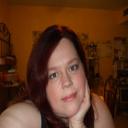Yahoo Answers is shutting down on May 4th, 2021 (Eastern Time) and beginning April 20th, 2021 (Eastern Time) the Yahoo Answers website will be in read-only mode. There will be no changes to other Yahoo properties or services, or your Yahoo account. You can find more information about the Yahoo Answers shutdown and how to download your data on this help page.
Trending News
Homeschoolers...what do you do for science labs?
We are designing a science class for a highschooler around photography? He is required to have a science with a lab for graduation. Any ideas? What is considered a lab? Any hands on learning?
I guess I should add that we dont want to do a traditional bio or chem lab. We want to improvise with a photography lab.
7 Answers
- 1 decade agoFavorite Answer
I'm doing Chemistry at the moment and have lots of lab work. A lab is pretty much a controlled experiment or demonstration of how something happens or chance to make observations. Basically putting the scientific method, as well as the concepts being studied in class to use. Applying it.
If you want to base your science class around photography, you have many options. You may not be able to make every lab photography related, but many can be.
There is A LOT of chemistry involved in developing photos. You can do a number of chem labs to demonstrate what chemical reactions take place when developing a photo, and how certain changes can affect these reactions.
Chromotography experiments can tie in here as well I think.
You can learn about how light works with a camera, what light is, and then branch off of this and do labs involving fiber optics, solar energy, different gasses that are used in lightbulbs. While not directly related to photography, you can do some on-the-side photography work and experiment with different lighting situations.
Learn why certain things appear in photos but not to the naked eye... like the tumors in the eyes caused by Retinoblastoma. Branch off and study things like RB.
Study vision and how that works and why we are able to see pictures at al. Maybe do a cow eye disection lab to understand the eye better. The supplies for this are fairly easy to obtain.
Learn how to take scientific photos to use as data for an experiment. While studying things like...hmm...Biology would be a good one here, do general labs in the subject area and find ways to use photos to aid in making observations and recording data.
If you do Physics, you can learn how to use a high-speed camera as a way of recording data.
The possibilities are endless.
- glurpyLv 71 decade ago
A science lab would be meeting requirements for chemistry, biology or physics. At least, that's what they are where I live.
ADDED: What would qualify as a lab really depends on the requirements where you live. There may be a way to get the photography to count as a chemistry lab if you look at the chemistry involved--this is assuming you are doing photography with film to develop. If you are doing digital photography, I'm sorry, I don't see how you can get a science lab out of it. The lab likely has to fit in with the content to be learned--which science is he doing? Photography doesn't count as a science for high school graduation.
- Anonymous1 decade ago
I think you could have a physical science class with photographic science as a component.
Photography includes physics and chemistry or computer science (depending if you are going with film or digital).
If you are trying to set this up as a science course I think you should go with film because of the chemistry aspects.
How to get a science lab credit out of this?
For us it might be easy because there is a Kodak plant not too far away and we could probably wrangle some time and assistance from them...
Real photo developing labs seem to be a thing of the past but if you could find one and convince them to allow your student to work as an intern that might work.
Be sure to document: Have your student do a report on the internship and have someone from the lab sign it.
Just some thoughts.
Who is it that has set this requirement? Depending on your answer, it might make most sense to ask them directly to be sure you get it right.
- pennypincherLv 71 decade ago
I used Apologia chemistry with my college-bound high schoolers. It has lab that does not require expensive equipment; but rather easy-to-get ingredients that you can find at the local grocery or Walmart. Their lab did count as credit.
- How do you think about the answers? You can sign in to vote the answer.
- GleeLv 71 decade ago
My kitchen is my lab. We also have a telescope and a microscope. We use them when we feel like it. We do experiments as the subjects come up. Some are from memory, others suggested from books, DVDs or websites. So far we're only doing experiments on around a 5th grade level.
- Cierra SLv 51 decade ago
Sorry, I will not be of much help. I am planning on taking my science lab class at the Jr. college when I turn 16.
- 1 decade ago
I had my son start at the community college when he was 15. He was able to do labs and such.



